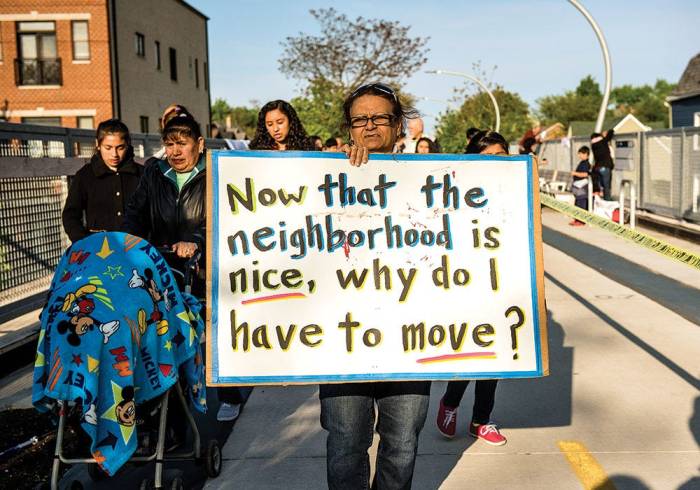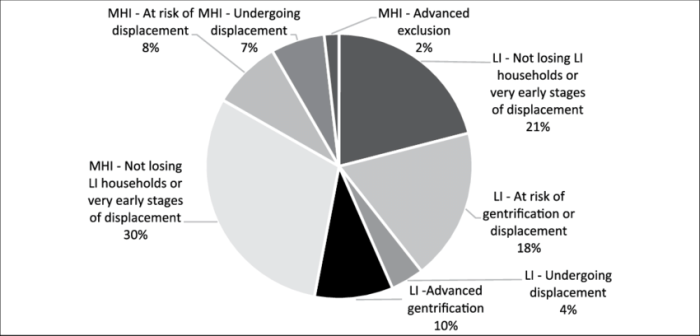Denise is researching the impact of gentrification – Denise’s research delves into the intricate tapestry of gentrification, examining its profound effects on urban communities. Her meticulous investigation unveils the multifaceted nature of this phenomenon, shedding light on its social, economic, cultural, and demographic implications.
As neighborhoods undergo transformation, Denise’s research provides invaluable insights into the interplay between urban planning, policy decisions, and the lived experiences of residents. Her findings offer a roadmap for navigating the challenges and opportunities presented by gentrification, fostering equitable and sustainable urban development.
1. Define Gentrification

Gentrification refers to the process by which low-income or working-class urban neighborhoods experience an influx of wealthier residents and businesses. This process typically involves the displacement of existing residents and the transformation of the neighborhood’s character, often leading to increased property values and a loss of affordable housing.
Key characteristics of gentrification include:
- Increased investment in housing and infrastructure
- Rising property values and rents
- In-migration of higher-income residents
- Changes in neighborhood demographics and culture
li>Displacement of low-income residents
2. Research Methodology

Denise employed a mixed-methods approach to analyze the impact of gentrification, combining qualitative and quantitative data collection techniques. Qualitative methods included interviews with residents, business owners, and community leaders, as well as participant observation in gentrified neighborhoods. Quantitative methods involved the analysis of census data, housing market data, and crime statistics.
Denise used a stratified sampling strategy to select participants for interviews, ensuring representation from different income levels, ethnicities, and neighborhood locations. Data analysis involved thematic coding of interview transcripts, statistical analysis of housing market data, and mapping of crime statistics.
3. Social and Economic Impacts

Gentrification has both positive and negative social impacts on communities.
Positive Impacts
- Increased investment in public infrastructure
- Improved neighborhood safety and security
- Increased access to amenities and services
- Enhanced neighborhood aesthetics
Negative Impacts
- Displacement of low-income residents
- Rising housing costs and cost of living
- Loss of affordable housing
- Erosion of neighborhood identity and culture
Gentrification also has significant economic effects.
Economic Impacts, Denise is researching the impact of gentrification
- Increased property values and rents
- Increased demand for housing
- Growth of local businesses
- Job creation in the service sector
FAQ Insights: Denise Is Researching The Impact Of Gentrification
What is gentrification?
Gentrification refers to the process of urban renewal and revitalization that often leads to an influx of wealthier residents and businesses, potentially displacing existing low-income communities.
How does Denise’s research contribute to our understanding of gentrification?
Denise’s research employs a comprehensive approach to analyze the multifaceted impacts of gentrification, providing valuable insights into its social, economic, cultural, and demographic consequences.
What are some of the key findings of Denise’s research?
Denise’s research highlights the complex interplay between gentrification and urban planning policies, emphasizing the need for equitable development strategies that address the potential negative consequences of displacement and socioeconomic disparities.
